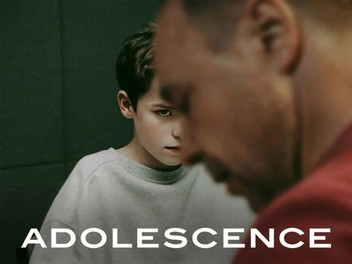This week’s faculty profiling focuses our attention on Professor Janet Garcia-Hallet, author of Invisible Mothers, Unseen yet Hypervisible after Incarceration, published in 2022 and assistant Professor of Criminal Justice at the university.
In a way, COVID delivered Garcia-Hallett, assistant professor of criminal justice, to this university.
Garcia-Hallett came to West Haven in the fall of 2021 from her time as a professor after her previous role as a professor at the University of Missouri-Kansas City, where she taught for four years.
“During the pandemic, a lot of universities lost funding,” Garcia-Hallett said. “There was a financial burden on a lot of universities across the country, but the university’s criminal justice department, they were hiring for three positions.”
One of those positions was for a critical criminologist.
“The job posting pretty much had my name written all over it,” said Garcia-Hallett, who has published scholarly articles in “The Prison Journal” and “Feminist Criminology,” among other journals.
Garcia-Hallett credited her husband for her travels around the country while he served in the U.S. Army.
Before Missouri, she lived in North Carolina. Garcia-Hallett taught as a graduate student in Newark, N.J. at Rutgers University, which had a far more diverse student body than the University of Missouri, she said. She earned her master’s degree and PhD at Rutgers.
Hallett said she considers her time at the university to be “a change of pace” because it’s a private university. Rutgers and the University of Missouri are both public universities.
She said her upbringing was the main factor that made her focus on the impact of incarceration on communities of color.
“I grew up in Harlem,” Garcia-Hallett said. “And whether it was drugs or having friends who were killed and going to their funerals, I always had an interest in what was going on in my community.”
As Garcia-Hallett entered graduate school, she began to study mass incarceration, specifically regarding men of color.
“The conversation was always around men, always about fathers,” she said. “But I was involved in my own community, through an organization in Harlem and throughout my neighborhood, I was surrounded by women and mothers. We would have coalition meetings, focusing on the issues that they had gone through themselves in New York prisons, such as Bedford Hills, a women’s facility in New York.”
Garcia-Hallett said she noticed specifically women who were placed in prison while pregnant and some who were forced to give birth whilst serving their sentences. Those women never showed up in the reading she was doing for class. The texts focused, instead, on men and fathers and absent fathers and how their absence placed an extra burden on mothers who stayed home with the children.
Her readings “never focused on the mothers who were incarcerated themselves. If there was a standpoint, it was from a negative one.”
Garcia-Hallett also ran into many difficulties when writing her first book and struggled with the process, she said.
“I didn’t know what I was doing,” she said. “I had absolutely no idea how to write a book, I didn’t know what a book proposal was, or where to send it. I definitely didn’t know how long the process would be. People warned me that it would take a long time, but I still underestimated how long it would take.”
In addition to writing the book, Garcia-Hallett said she had the worries of her day-to-day life to attend to.
“I was still teaching, doing service, taking care of my kids, being a wife and moving all over the country,” she said. “So I had to find time to sit down and write around all of this. It took a lot of time management and time commitment.”
Garcia-Hallett said she figured out how to juggle responsibilities from her mother.
“I know this sounds a little bit cliche, but my biggest role model would have to be my mother because I’m a child of immigrants,” she said. “They are both from Honduras, so I can imagine the struggles my parents went through to give us a better lifestyle.”
Garcia-Hallett is also a first-generation college graduate, as well as the first in her family to earn a Ph.D.
“I’m proud of that,” she said. “It’s all because of my friends and mentors, but especially my mom. There is no other true model for me since there is no one like her.”
Garcia-Hallett continues to work on a project at a Missouri prison, for which she’s received a $2.8 million grant.
“We have been doing research on a prison in Missouri, on prison culture and climate, and just kind of see what goes on behind the scenes,” she said.
“We plan to expand with this grant to take the project to four prisons in the state of Missouri, and use that money to help make some changes within those facilities,” said Garcia-Hallett. “I plan to go back and forth to Missouri often to oversee this project.”









